Filter by
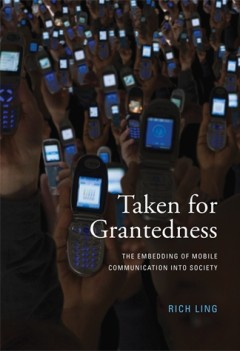
Taken for grantedness :the embedding of mobile communication into society
"Why do we feel insulted or exasperated when our friends and family don't answer their mobile phones? If the Internet has allowed us to broaden our social world into a virtual friend-net, the mobile phone is an instrument of a more intimate social sphere. The mobile phone provides a taken-for-granted link to the people to whom we are closest; when we are without it, social and domestic disarray…
- Edition
- -
- ISBN/ISSN
- 9780262305266
- Collation
- 1 online resource (xiii, 241 pages) :illustrations
- Series Title
- -
- Call Number
- -
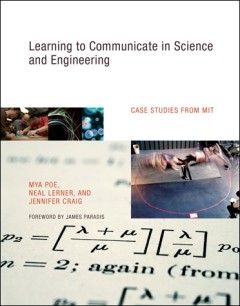
Learning to communicate in science and engineering : Case Studies from MIT
To many science and engineering students, the task of writing may seem irrelevant to their future professional careers. At MIT, however, students discover that writing about their technical work is important not only in solving real-world problems but also in developing their professional identities. MIT puts into practice the belief that "engineers who don't write well end up working for engin…
- Edition
- -
- ISBN/ISSN
- -
- Collation
- 1 online resource (xii, 256 pages) :
- Series Title
- -
- Call Number
- -
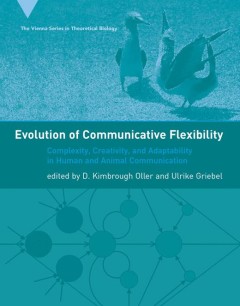
Evolution of communicative flexibility : Complexity, Creativity, and Adaptabi…
Experts investigate communicative flexibility (in both form and usage of signals) as the foundation of the evolution of complex communication systems, including human language.
- Edition
- -
- ISBN/ISSN
- -
- Collation
- 1 online resource (x, 356 pages) :
- Series Title
- -
- Call Number
- -
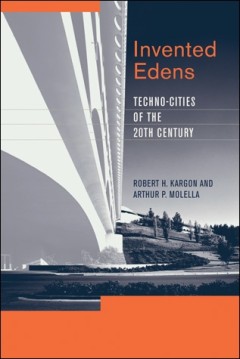
Invented Edens : Techno-Cities of the Twentieth Century
Tracing the design of "techno-cities" that blend the technological and the pastoral. Industrialization created cities of Dickensian squalor that were crowded, smoky, dirty, and disease-ridden. By the beginning of the twentieth century, urban visionaries were looking for ways to improve both living and working conditions in industrial cities. In Invented Edens, Robert Kargon and Arthur Molella t…
- Edition
- -
- ISBN/ISSN
- -
- Collation
- 1 online resource (viii, 190 pages) :
- Series Title
- -
- Call Number
- -
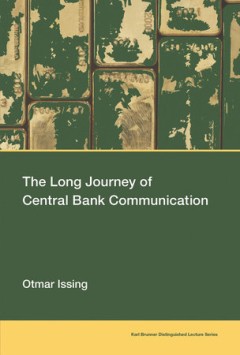
The long journey of central bank communication
Central bank communication has evolved from secretiveness to transparency and accountability—from a reluctance to give out any information at all to the belief in communication as a panacea for effective policy. In this book, Otmar Issing, himself a former central banker, discusses the journey toward transparency in central bank communication. Issing traces the development of transparency, ex…
- Edition
- -
- ISBN/ISSN
- 9780262355995
- Collation
- 1 online resource (104 pages).
- Series Title
- -
- Call Number
- -
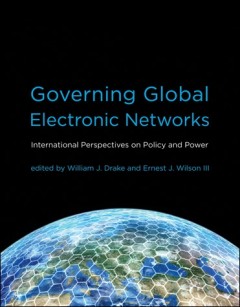
Governing global electronic networks : Governing Global Electronic Networks:
In this volume, experts analyze the global governance of electronic networks, emphasizing international power dynamics and the concerns of nondominant actors. Each chapter concludes with a set of policy recommendations for the promotion of an open, dynamic and more equitable networld order.
- Edition
- -
- ISBN/ISSN
- -
- Collation
- 1 online resource (xvi, 664 pages) :
- Series Title
- -
- Call Number
- -

Liberating voices : Liberating Voices:
"In recent decades we have witnessed the creation of a communication system that promises unparalleled connectedness. And yet the optimistic dreams of Internet-enabled engagement and empowerment have faded in the face of widespread Internet commercialization. In Liberating Voices, Douglas Schuler urges us to unleash our collective creativity--social as well as technological--and develop the com…
- Edition
- -
- ISBN/ISSN
- -
- Collation
- 1 online resource (xiv, 604 pages) :
- Series Title
- -
- Call Number
- -
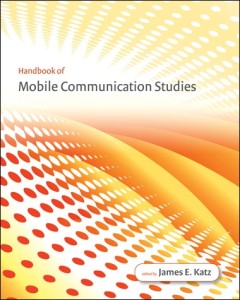
Handbook of mobile communication studies / of Mobile Communication Studies
This volume offers a view of the cultural, interpersonal and family consequences of mobile communication across the globe. The contributors analyse the effects of moble communications on all aspects of life, from the relationship between literacy and the textual features of phones, to the use of ringtones as a form of social exchange.
- Edition
- -
- ISBN/ISSN
- -
- Collation
- 1 online resource (ix, 472 pages) : illustrations, map
- Series Title
- -
- Call Number
- -

Sport 2.0 :
Ramifications of the convergence of sports and digital technology, from athlete and spectator experience to the role of media innovation at the Olympics.
- Edition
- -
- ISBN/ISSN
- -
- Collation
- 1 online resource (x, 274 pages)
- Series Title
- -
- Call Number
- -
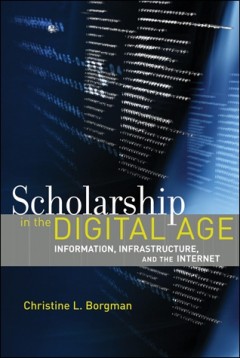
Scholarship in the digital age: Information, Infrastructure, and the Internet
Scholars in all fields now have access to an unprecedented wealth of online information, tools, and services. The Internet lies at the core of an information infrastructure for distributed, data-intensive, and collaborative research. Although much attention has been paid to the new technologies making this possible, from digitized books to sensor networks, it is the underlying social and policy…
- Edition
- -
- ISBN/ISSN
- -
- Collation
- 1 online resource (xxiv, 336 pages) : illustrations
- Series Title
- -
- Call Number
- -
 Computer Science, Information & General Works
Computer Science, Information & General Works  Philosophy & Psychology
Philosophy & Psychology  Religion
Religion  Social Sciences
Social Sciences  Language
Language  Pure Science
Pure Science  Applied Sciences
Applied Sciences  Art & Recreation
Art & Recreation  Literature
Literature  History & Geography
History & Geography